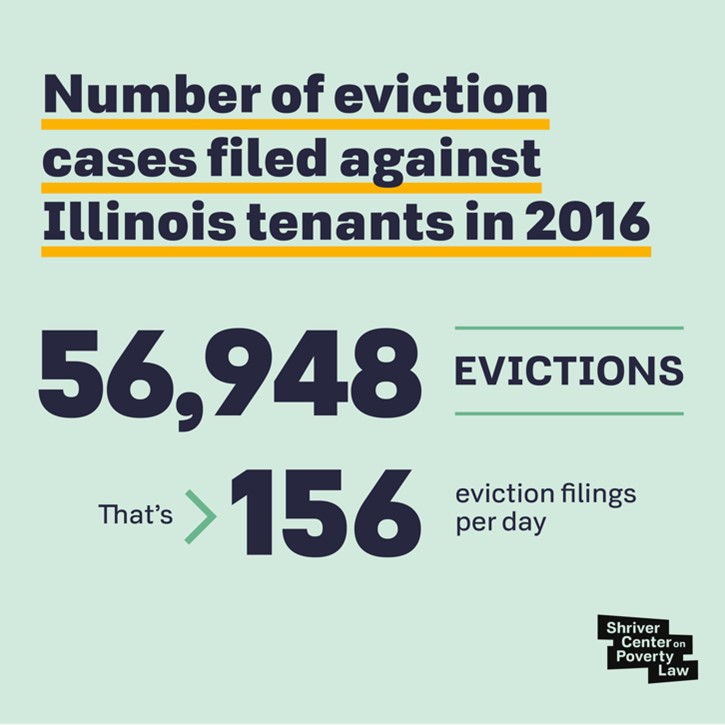
Background screening practices block many tenants from safe and affordable housing.
May 10, 2023
Everyone deserves a place to call home. But background screening practices — which often take the form of unfair and biased tenant screening — block many tenants from safe and affordable housing.
Although they purport to evaluate a tenant’s likelihood to be a good or bad tenant, tenant screening reports perpetuate housing discrimination against communities of color. Tenant screening reports often include an applicant’s rental history, credit report, and criminal background check, as well as records of civil cases where the applicant is a party, such as eviction or debt collection cases. But the tenant screening industry is largely unregulated and frequently undermines laws passed by state and local legislative bodies to ensure equal access to housing. Under “the New Jim Code” — algorithms, artificial intelligence, cloud computing — technology is increasingly used to confine, control, and discriminate against Black, Latino/a/x, and other tenants of color.
Eviction filings, which are often included on tenant screening reports, hamper tenants’ ability to find a new home, regardless of the case’s outcome. Landlords increasingly rely on reports from tenant screening companies to automatically weed out anyone with an eviction filing in their past. Millions of people face eviction proceedings every year. In a typical year, landlords file 3.6 million eviction cases. National and local data have consistently demonstrated that Black and Latino/a/x renters, particularly female renters, are disproportionately at risk of eviction.

In Illinois, 56,948 eviction cases were filed against tenants in 2016. That’s 156 eviction filings per day. And half of all eviction filings in Illinois do not result in a judgment against the tenant. Yet, even where the case was dismissed or the tenant won at trial, eviction filings remain in the public record indefinitely, trapping people and families in a cycle of housing instability.
A tenant’s criminal record — also often included on tenant screening reports — also acts as a barrier to housing. Many people have been involved in the criminal-legal system at some point in their lives: 1 in 3 adults has an arrest or conviction record. Moreover, people of color disproportionately bear the brunt of our overly punitive and expansive criminal legal system. Black Americans are incarcerated in state prisons at nearly five times the rate of whites.
Prospective tenants’ criminal records, no matter how old or inconsequential, are often used to discriminate against tenants based on their race, causing housing instability and homelessness. And the collateral consequences of a criminal record are not limited to individuals with records. For example, nearly half of all U.S. children have a parent with a record; housing instability can significantly undercut these kids’ ability to graduate high school and enroll in and finish college. These barriers to upward mobility do not just harm individuals and their families. In the long run, they ultimately harm us all.
Smart state and local policies can mitigate the impact of unfair screening. For example, eviction records sealing can remove barriers to housing. New state laws in Indiana and Utah have expanded eviction sealing, and legislation was proposed this session in Illinois.
Policies that prohibit blanket bans on housing for individuals with criminal records have also proven to improve equitable housing opportunities. In Cook County, Illinois, the Just Housing Amendment ensures that housing providers do not consider arrests, juvenile records, and sealed and expunged records when evaluating an application for rental housing, or look back further than three years after an applicant’s date of conviction. For applicants with a conviction on their record, housing providers must conduct an individualized assessment and consider factors such as the nature of the offense and the time that has passed since the offense.
But more needs to be done to ensure that tenant screening reports are accurate and unbiased and reduce the stigma against people with arrest and conviction or eviction histories. Recent federal actions are encouraging. The Federal Trade Commission and the Consumer Financial Protection Bureau are seeking public comment on tenant screening practices (comments are due May 30, 2023). Any member of the public may submit comments either through the federal government’s website or through stoptenantscreening.org. And the White House recently held a listening session with tenant leaders, advocates, and providers on ways to strengthen tenant protections.
We can protect tenants from unfair practices. The Shriver Center will continue to fight for policies that prevent housing discrimination and ensure equitable access for all.
All people should have the right to a safe, stable home to build better futures for themselves and their families.
Shelter is not only a basic human need, it is also critical to people’s ability to pursue and attain economic stability.
Housing is fundamental to achieving economic stability, better health outcomes, and thriving families and communities.